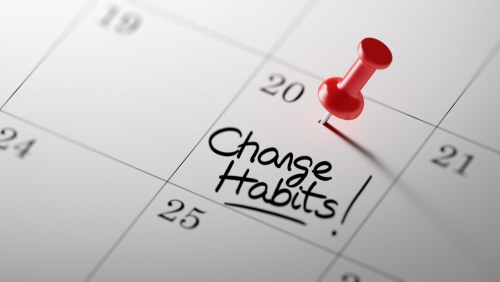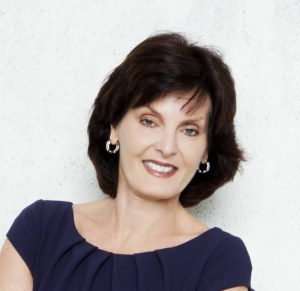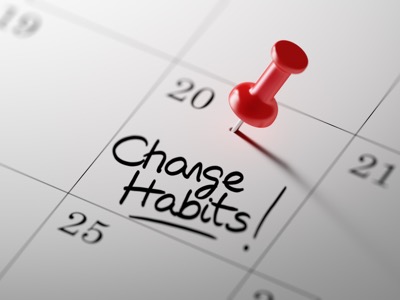
How many times have you tried to change and failed?
Maybe you wanted to quit smoking or perhaps lose weight or maybe start a new fitness regime. Why is it so difficult to change?
Neuroscientists have shown that the conscious mind provides five per cent or less of our cognitive activity during the day… and five per cent is for the more aware people. So most of your decisions, actions, emotions and behaviour depend on the 95 per cent of brain activity that is beyond your conscious awareness. In other words, even when you ‘think’ you are consciously making a decision, it is all the patterns and programs stored at the unconscious level which are actually making our decisions for you. It is the unconscious mind which shapes how you live your life.
Patterns and habits
We are creatures of patterns and habit, and it’s our patterns in thinking and behaviour that create our response to circumstances and not the circumstances themselves.
What this suggests is that as a human being, you are literally a conditioned response machine. Just consider some of your conditioned responses today. If you have been driving then a red traffic light is the trigger that creates the ‘stop’ response. If your stomach rumbles that’s the trigger that you want something to eat, or if the alarm clock rings in the morning that’s the trigger that creates the response of either getting up or rolling over and pushing the snooze button!
In his research, Russian physiologist Ivan P. Pavlov started experimenting initially with dogs. What he would do is put some steak in front of them and when the dogs started salivating he would ring a bell. He would do this again and again… put some more steak in front of the dogs and when they started salivating he would ring a bell. He did this so many times that he found that just ringing the bell would make the dogs salivate, even though there was no steak. In his research, he associated the sound of a bell to when the dogs were hungry and would salivate. In 1936, after years of research with dogs, he submitted a paper to the Russian Medical Society called “Conditioned Reflexes.”
Teaching an old dog new tricks!
Can you teach one of Pavlov’s dogs a new trick? Can YOU change and learn a new behaviour? Well this is where the field of neuroplasticity is opening up the possibilities to change.
Neuroplasticity is what makes personal growth and development possible and refers to the brain’s ability to restructure itself after training or practice. As Aristotle said, ‘we are what we repeatedly do. Excellence, then, is not an act, but a habit.’ Studies have been performed on plasticity during meditation and have shown that the brain can change based purely on mental training. This, of course, has huge implications for mental practice and its impact on overall well-being.
To highlight the mental aspect, Australian Psychologist Alan Richardson ran an experiment with a group of basketball players. Dividing them into three groups, the first group would practice for 20 minutes every day, the second group would only visualise themselves making free throws, but no real practice was allowed. The third group would not practice or visualize. The results were astounding. There was significant improvement from the group that only visualized; they were almost as good as the guys who actually practiced. Imagine the implications on all areas of your life when you set aside time to mentally visualize and rehearse a new skill.
About the author
The author of Amazon International Best Seller, YOU The Divine Genius Carol is a professional speaker sought-after by organisations, conference organizers and individuals seeking a learning consultant, thought-partner, and keynote speaker with a difference.
Carol combines the edginess of systems such as NLP (Neuro-Linguistic Programming) and Fire Walking with the ‘coal face’ of business and life. Whether one-on-one or to an audience of thousands, Carol has helped individuals and teams worldwide ignite their creativity and greatness for more than two decades.
Find out more about Carol through her website, Facebook or Twitter.









